Iran Suffers From Lack Of Airliners Due To Sanctions
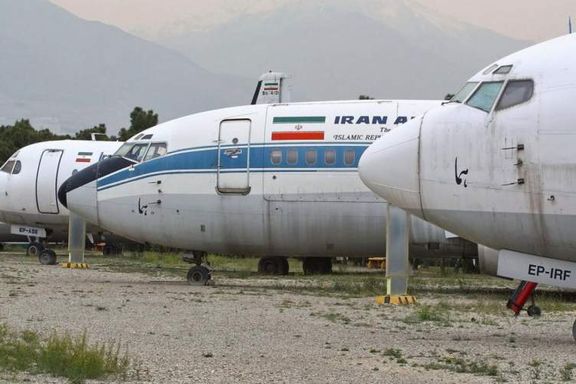
Amid sanctions, Iran's aviation industry is struggling to meet operational aircraft targets with only 180 aircraft currently in service, falling short of the planned 250 by the end of last year.

Amid sanctions, Iran's aviation industry is struggling to meet operational aircraft targets with only 180 aircraft currently in service, falling short of the planned 250 by the end of last year.
Led by Mohammad Mohammadi-Bakhsh, the head of the Civil Aviation Organization, officials stressed the need to expand the fleet to accommodate the country's population, estimated to require 550 aircraft.
However, with only 330 aircraft in the fleet and less than 200 actively utilized, the industry faces a considerable deficit in the face of global sanctions for Iran's nuclear program, human rights abuses and support of Russia's invasion of Ukraine.
Mohammadi-Bakhsh previously reported a surge in operational aircraft before Norouz, with grounded planes returning to service, boosting operational numbers to 178 during the festive season. Last year he claimed that procurement efforts had resulted in over 50 aircraft and helicopters being added to the fleet, but the target of 250 operational aircraft by year-end remained unmet.
However, last month, he admitted operational challenges such as delays in customs clearance for aircraft parts, remained a significant hurdle.
Amidst repair initiatives, domestic production limitations, and import restrictions, Iran's aviation industry faces additional challenges. Reports of flight delays and safety concerns within Iranian airlines further compound the industry's woes.

After self-congratulatory Norouz messages by top leaders this week, relatively independent media in Tehran published sharp criticism by pundits who sounded dire warnings about the coming year.
The fact that in Iran's government-controlled media landscape the criticisms have been published immediately after Supreme Leader Ali Khamenei and President Ebrahim Raisi's New Year messages, indicates that compared with even a few months ago, the government has effectively lost its authority and control.
In Iran's government-controlled media landscape, the publication of criticisms immediately following Supreme Leader Ali Khamenei and President Ebrahim Raisi's New Year messages signifies a notable shift. This suggests that the regime has lost more credibility and its control over public discourse has somewhat weakened, especially when compared to just a few months ago.
Khamenei in his new year message had challenged the US and Israel and claimed that America’s supremacy in the Middle East was waning. He also took pride in the recent elections in Iran, although they have been branded by Iranian media and political observers as the worst in the history of the Islamic Republic in terms of turnout and representativeness.
Meanwhile, in his mostly ignored Iranian New Year message, Raisi as usual presented fabricated figures about economic progress, especially in the areas of housing and employment, while everyone else speaks about declining living standards.
In a report published by Tehran-based Khabar Online news website on March 21, the second day of the Iranian New Year, experts outlined the missed opportunities in foreign relations, emphasized the government's economic failures, and called for radical changes in its policies.
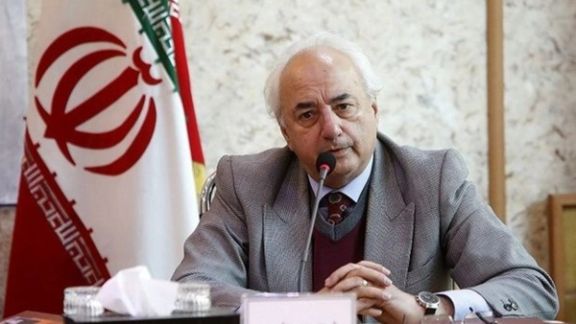
The website quoted former diplomat Fereidoun Majlesi, who expressed concerns about Iran's diminishing international standing as its economic conditions worsen. Majlesi highlighted Iran's isolation throughout the past year and its failure to establish effective diplomatic relations with other nations.
He emphasized that Iran's foreign policy predominantly revolved around its relations with Arab countries and its stance on the conflict in Gaza, neglecting efforts to mend its strained relations with Western nations.
Echoing sentiments shared by many Iranian foreign policy experts, Majlesi called for a reassessment of the Islamic Republic's foreign policy to better serve the country's national interests. He noted Iran's lack of a coherent foreign policy framework, with limited diplomatic ties beyond its relationships with Syria and a handful of African states. Other nations either tolerate Iran or have severed diplomatic relations altogether.
He emphasized that although Iranian diplomats repeatedly speak about their readiness to revive the nuclear talks, there has been absolutely no progress in that area.
Meanwhile, international relations expert Alireza Bigdeli criticized Iran's one-sided relationships with Russia and China, emphasizing that the East cannot effectively assist Iran in revitalizing its struggling economy.
Bigdeli highlighted that when Joe Biden assumed office as US President, he pledged to engage in negotiations with Iran to resolve the nuclear standoff. However, Iran missed this opportunity due to its involvement in regional crises, resulting in no progress. Additionally, Bigdeli noted that Iran alienated the European Union, with Europe refraining from issuing harsh resolutions just because Washington did not want to up the ante.
He argued that Iran can only improving its foreign relations once it stabilizes its ties with the West. On the other hand, Ghasem Mohebali, another foreign relations expert, called for a comprehensive reassessment of Iran's foreign policy in the new year. He highlighted that Iran lost control over the nuclear negotiations last year, leading to heightened sanctions.
Mohebali expressed concern that with the potential return of Donald Trump to the White House, Iran should be more vigilant than ever about its relations with Washington. He identified a major issue with Iran's foreign policy as the lack of control by its Foreign Ministry, with other influential players, such as Khamenei and the IRGC, steering the country toward alliances with Russia and China, hindering a balanced foreign policy approach.
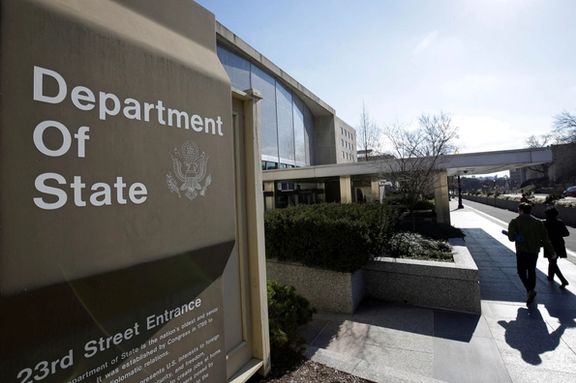
The backlash by Iranians to a US State Department post on Instagram continued Saturday with 80 Iranian-American activists and citizens urging the Secretary of State to have it removed.
“It is deeply concerning that the US State Department would endorse and promote an individual with such tainted history and character as a defender of Iranian women,” the signatories write in their open letter. “This decision undermines the credibility of the United States in advocating for human rights and democracy… in Iran.”
The ‘individual’ in question is Faezeh Hashemi Rafsanjani, a former member of parliament in Iran and daughter to a former president of the Islamic Republic. In recent years, she has become a critic of government policies and has voiced support for women's rights. She has been hailed as a “champion of women rights across Iran” by the State Department’s official account in Persian @USAbehFarsi.
“Ms. Rafsanjani is against compulsory hijab, supports women's rights and defends other prisoners whom she considers innocent,” reads the original State Department post. “Even when her rights were violated, Ms Rafsanjani bravely fought for the rights of others.”
The post was received by anger and disbelief among Iranians, who felt the choice was “at best distasteful”, given that Ms. Rafsanjani’s father, Ali Akbar Hashemi Rafsanjani, was the main architect of the regime and at the heart of its every malign activity –inside Iran and overseas– for almost four decades.
“The Islamic Republic regime routinely imprisons individuals within the establishment for minor disagreements, and Mrs. Hashemi Rafsanjani's situation appears to be part of an internal power struggle, rather than genuine commitment to justice on either party,” reads the letter to Secretary Blinken. “We urge you to… support individuals who genuinely champion the rights and freedoms of all Iranians –women and men– and their struggles for a secular, democratic Iran.”
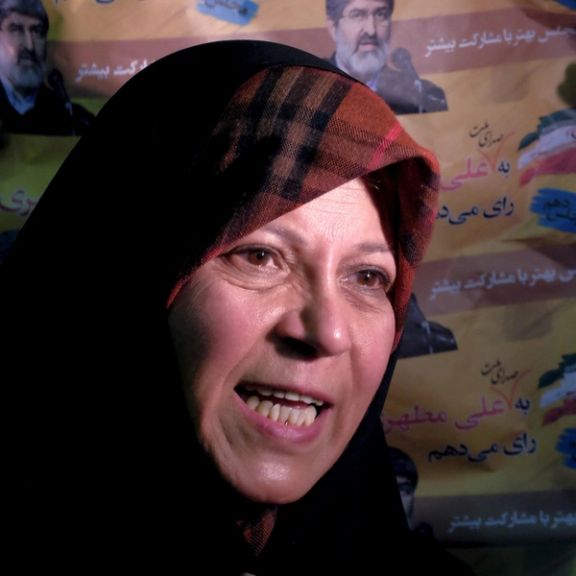
The sentiment in the letter was shared by many Iranians who have moved on from the Reformist-Fundamentalist duality of regime insiders to reject the Islamic Republic in its entirety. In this view, Faezeh Hashemi Rafsanjani is ultimately an “insider” with unmatched privilege in her social and political life, despite her having become a critic of regime policies. Hence the outrage at the State Department’s decision to pick and promote her.
Within a few hours of appearing on Instagram, the Faezeh Hashemi post received just under 5,000 comments, overwhelmingly negative, which forced the account’s administrator to close the comments section. The backlash continued, nonetheless, spilling over to other platforms such as X.
Most notably, several members of the families who have lost loved ones in recent anti-regime protests took to social media to vent their anger, frustration, and often bafflement at the Biden administration’s Iran policy.
“No doubt that the US State Department is consciously walking alongside the Islamic Republic towards common goals,” posted Saeed Afkari, a brother to Navid Afkari, who was executed in 2020 at the age of 27, for protesting, despite pleading innocence in the face of severe mental and physical torture.
Saba Bakhtyari, whose brother and sister-in-law are in prison for speaking against the killing of their son, Pouya, was another of the Families for Justice who denounced the US government and their Instagram post.
“For us who seek justice, there’s no difference between Faezeh Rafsanjani, [current President] Raisi, and [Supreme Leader] Khamenei,” she wrote on her account on X. “And the fact that the US State Department has called one of our killers brave, proves that the US, just like 1979, is still a friend of the mullahs and an enemy of the people of Iran.”
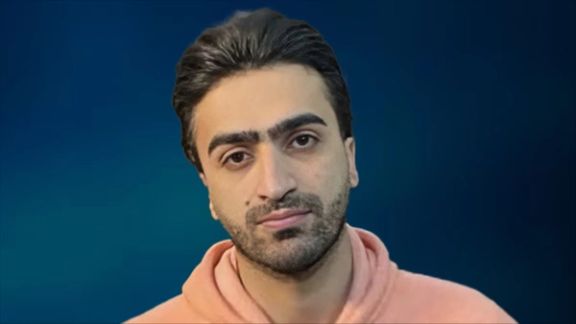
Alireza Khari is not the only political prisoner in Iran who committed suicide under continuous psychological pressure and torture, even after release from prison.
Khari, a young protester in his late twenties from Bandar Gaz in northern Iran, ended his life earlier this week. Rights activists say he was repeatedly called in and threatened by the Revolutionary Guards (IRGC) intelligence organization after his release from prison.
Judiciary officials of the Islamic Republic which has always refused to allow international investigations into Iranian prisons claim conditions at these facilities are suitable. The experience of many prisoners, however, proves that prisons and detention centers run by security forces have become “killing grounds” for prisoners, especially dissidents.
Authorities always attribute suspicious deaths in prisons and detention centers, or shortly after prisoners’ release, to suicide and claim they suffered from mental health or had personal problems.
In the past four decades, dozens of political and ordinary prisoners have committed suicide in prison or shortly after their release.
In the past month alone, several political prisoners attempted or committed suicide. These include Mosayeb Yeganeh who was returned to Tehran’s Evin prison from hospital before the completion of his treatment. Shahin Gallehdari, a Kurdish political prisoner was another victim who passed away at the ultra-security ward of the Central Prison of Orumieh in northwestern Iran, and Hasan Omarpour, another Kurdish prisoner self-immolated at the same prison.
In February Amir Shahbazi, a prisoner sentenced to amputation of his fingers for theft, also committed suicide at the infamous Central Prison of Orumieh. He had reached an out of court agreement with the plaintiff to forgo the amputation sentence, but authorities insisted on carrying out the sentence.
Besides Orumieh Central Prison and Tehran’s Evin Prison, suspicious deaths and suicides have recently been reported at Lakan Prison in Gilan Province, the Central Prison of Tabriz in East Azarbaijan Province, and Ilam Prison in Ilam Province.
During and after the Woman, Life, Freedom protests of 2022-2023, several protesters died suspiciously in detention or shortly after freedom. These included Javad Rouhi (35), Maryam Arvin (29), Arshia Emamgholizadeh (16), Yalda Agha-Afzali (19), Mina Yaghoubi (33), Abbas Mansouri (18), and Atefeh Naami (37).
Coroner’s report attributed Rouhi’s suspicious death in hospital a year after his arrest to interaction of the medicines he was taking. Rouhi who was arrested in September 2022, was sentenced to death in a sham trial. His death sentence was overturned by the Supreme Court but continued to be threatened, tortured, and harassed.
Rights organizations said Rouhi was brutally tortured at a Revolutionary Guards (IRGC) detention center and even lost his power of speech.
Arvin, a lawyer who offered advice to prisoners and their families, also died after her release from prison. Her family reject judiciary officials’ claim that she died of suicide and believe she died because of drugs she had been administered in prison.
In some cases, as in Agha-Afzali’s case, authorities attributed the suspicious deaths of prisoners after freedom, to drug misuse. However, in an audio-file before her death, Agha-Afzali had revealed brutal tortures in prison.
Some former political prisoners have revealed that they were forced to take drugs or injections that they suspect could have contained psychoactive substances. These drugs, they say, highly affected their physical and mental health, they say.
Rights organizations and activists say physical and psychological torture and alleged administration of psychoactive drugs could cause such suspicious deaths and suicides.
Torture, as in the case of dissident Rapper Saman Yasin, sometimes include incarceration at mental facilities. In a letter from prison to the Chief Justice, Yasin begged to be executed, because, he said, death by execution was preferable to the tortures he had endured.
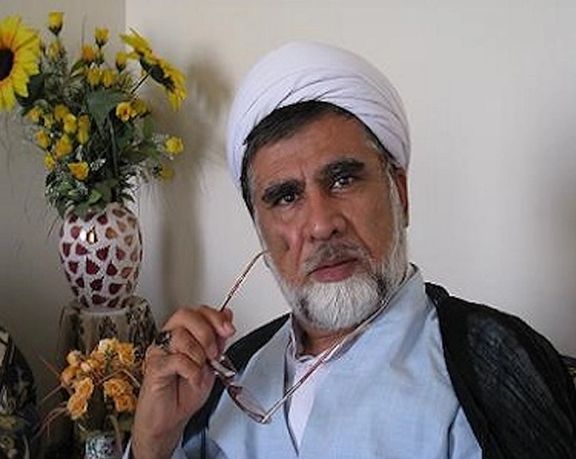
A member of the Qom Seminary Scholars has voiced significant concerns regarding low electoral participation and the failure of government economic policies in Iran.
Mohammad-Taghi Fazel-Meybodi highlighted the low turnout in the recent elections, emphasizing that over 50% of the population abstained from voting, viewing their non-participation as a form of protest rather than apathy. He urged the government and authorities “to heed the message and demonstrate responsiveness, particularly with the upcoming presidential elections on the horizon.”
Furthermore, Meybodi cautioned that if the Guardian Council maintains its current policies of banning hundreds of candidates, “achieving unity will remain elusive.” Meybodi warned against marginalizing certain groups, as it hinders "the cultivation of unity."
Expressing disappointment with the government's performance, Meybodi criticized the failure to fulfill promises and address economic crisis effectively. He noted that despite proclaiming efforts to control inflation, “the reality on the streets and in the markets contradicts official statistics.” Meybodi highlighted the discrepancy between government claims of a 30% decrease in inflation and the actual rise in inflation rate, which he said stands at 47%.
He also criticized hardliner cleric Ahmad Alamolhoda, who defends the government, questioning his perspectives on economic issues. He urged Alamolhoda to compare inflation rates during President Hassan Rouhani's term with the current administration led by President Ebrahim Raisi,- noting a significant difference in performance.
He also indirectly referred to the misappropriation of land by Tehran's interim Friday Prayer Imam, Kazem Seddiqi, suggesting that such actions have eroded people's trust in religious leaders.
Meybodi highlighted the disconnect between rhetoric and reality, expressing skepticism about the effectiveness of current policies in addressing economic challenges and fostering national unity.
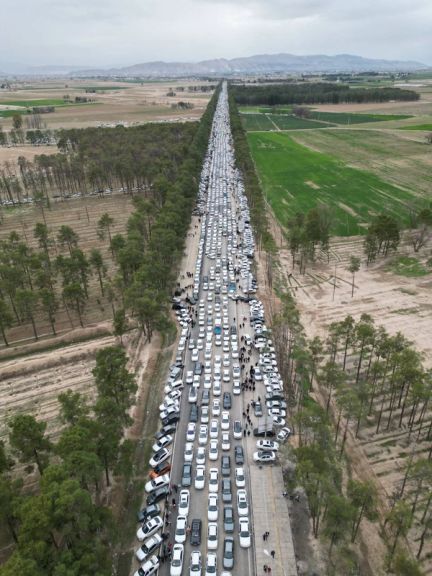
Images and videos posted online show large crowds of people visiting Persepolis, the ancient seat of Achaemenid kings, and the royal Sa'dabad Palace in Tehran during Norouz holidays.
Thousands celebrated the moment of the beginning of the Iranian New Year at Persepolis on Wednesday morning. Despite the strict measures by the Iranian regime and the coincidence of Norouz and the Islamic fasting month of Ramadan, many Iranians danced and rejoiced in this historical venue in southern Iran to celebrate the New Year.
Ettela’at Online news website described as “unprecedented” the presence of people at Persepolis. Mohammad Sabet Eghlidi, Director General of Tourism Department at Fars province, announced that more than 10,000 people, including tourists, attended the New Year’s celebration at Persepolis.
Over the past decades, the Iranian government has systematically tried to distance people from the pre-Islamic traditions, rituals and cultural heritage. It has frequently banned people from visiting the Pasargadae and Persepolis, ancient sites dating back to the Achaemenid Empire, on Cyrus the Great Day.
The coincidence of Nowruz and Ramadan this year has prompted the Islamic Republic to step up its harsh measures against those opting for a different lifestyle and worldview than those endorsed by the regime. On Thursday, Iran’s deputy interior minister for security affairs said Nowruz travelers eating in public will be punished. “The sacredness of Ramadan must be respected,” stressed Majid Mirahmadi.
Meanwhile, photos from Iran in the past four days show thousands of people waiting in long lines to enter the Sa'dabad Palace, one of the main residences of Iran's last king, Mohammad Reza Pahlavi. During the Norouz holidays last year, the Sa'dabad Palace was declared the most visited historical site in the Iranian capital city Tehran.
The Islamic Republic has tried in vain to spread a negative picture of the Pahlavi dynasty and reduce their popularity.